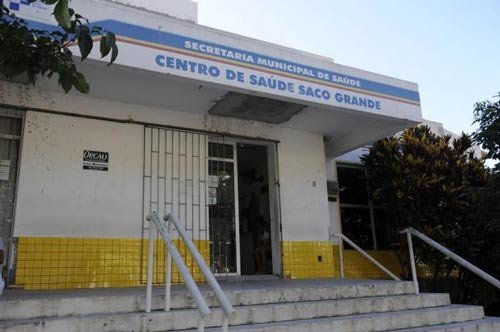 So you’ve settled down in a certain area, chosen a doctor and hospital and are well aware of the financial and insurance obligations with having a baby in Brazil.
So you’ve settled down in a certain area, chosen a doctor and hospital and are well aware of the financial and insurance obligations with having a baby in Brazil.
What’s to expect next?
Today, I am going to give you a great idea of how the pre-natal and delivery happens so that you can have a secure feeling of what to expect.
I will never forget my surprise when first being introduced to the Brazilian way of having a baby.
Though people were super happy, helpful and surprised whenever they saw that my wife was pregnant, it just seemed that it was looked at more as a condition that could only be treated by a doctor.
Don’t get me wrong, I know that the right doctor will be competent and helpful, it was just a shock to see people’s views towards the pregnancy (both good and bad).
Back where my wife comes from (Denmark), pregnant women are treated much differently both in and out of a hospital.
For the first part, you get taken care of by midwifes the whole way through and rarely see the doctor – if at all.
And secondly, the midwives are focused on keeping things as natural as possible. Whereas in Brazil, it’s views as needing to be done clinically.
What to Expect Before Giving Birth
To start, expect to answer to a doctor the whole way through your pregnancy.
In an authoritarian structured society, it’s common to always have someone to answer to and in this case it is the doctor who knows best.
It’s important you know that the Brazilian view of doctors is that “they always know best”, so be prepared to have your opinion or thoughts overwritten if the doctor deems necessary.
This is also why it’s sooo important to find a great doctor.
Before continuing, I think it’s important to mention that you can give birth via a group of midwives if you want, it’s just uncommon and looked down upon culturally (this is what we did via a birthing clinic). I will cover this at the end of this series.
Checkups and the doctor
It all starts with a doctor’s journal to get all sorts of info about you + a birth test…
…then to an ultrasound to identify how far along you are.
These checkups either happen at the doctor’s private clinic or at the hospital he is associated with.
After the doctor is certain about how far along you are, you will be put onto a pregnancy plan full of checkups and another ultrasound (or two).
My wife had about 1 checkup per month as long as everything was according to plan and the pregnancy was healthy and fine.
The doctor we initially started with before switching to the home birthing clinic at the end of her pregnancy, gave us his cell phone number in case of emergency or in case we had any questions.
It is very common to ask the doctor everything under the sun instead of figuring it out alone. So don’t feel bad if you have to pick up the phone and call your doctor about something.
Birthing Classes
During the pre-natal period of your pregnancy, it’s not uncommon for you to be placed into (or encouraged to be) a birthing group a la Hollywood movies.

You know, where the expecting father sits behind the expecting mother as they work on different breathing exercises and the like.
It’s also a great way to make new friendships with other expecting couples, trade experiences and have a support group for when the time comes (and after).
This is especially good for after the delivery as it’s wonderful to have someone in a similar situation to call and ask if the baby spits up too much, poops sideways or whatever.
Other tests and preparations
Be aware that there are some other tests and “blood work” that will need to be done before the birth.
When my wife needed her blood work done, we had to go to a special clinic that only takes care of this type of thing.

A “posto de saúde” where you get vaccines done under SUS.
It was a clinic you barge into and tell them what you need done.
When we arrived, we told the receptionist what needed to be done and we sat in the waiting area and just waited until her name was called.
What seemed like a lifetime later as far as a pregnant woman is concerned had passed by, we got to go into their over-glorified dressing room and let them leach away a few vials of blood samples to test for and other would-be issues.
To our relief, the tests came back and looked ok.
What to Expect During Birthing
How your birthing story unfolds is going to highly depend on whether you are going with a c-section, natural birth or a home birth (I’ll cover home-birthing in a dedicated post at the end of this series).
Note: make sure you get your CPF number taken care of well in advanced, the hospital will need them to issue the “ficha amarela” (a yellow document stating that the baby was born) so you can get the birth certificate taken care of.
What to expect during a c-section
If there’s one thing doctors are good at in Brazil, it’s doing c-sections (due to the high amount).
Expect things to happen much like anywhere else in the western world. You and your partner get to put on those fancy hospital clothes (sorry only blue, no pink available!).
And after you have been introduced to what is going to happen + talked out of any vengeance towards the doctor during recuperation, you get to lay down onto a surgical bed and prepped for surgery.
You have the anesthesiologist, doctor and an assistant at your side and a little screen to block your view as they apply local anesthesia (so you can be aware) and begin surgery.
As the baby is ready to come out, they then lower the screen so that you and your partner can enjoy that special first moment with your newborn.
After cutting the umbilical chord, the doctor then takes care of removing the placenta and stitching the hole back up.
What to expect during a natural birth
Imagine your contractions starting, as they get stronger and stronger you know that it’s almost time.
You pick up the phone and call your doctor to let him know about your contractions, he then tells you what to do next: as soon as they are stable, continuous and strong (or if your water breaks) then come in.
To the batmobile!
Getting to the hospital can be done several ways:
- By your own car
- By a hospital ambulance (please do not call the city ambulance – may take a long time to show up…)
- A friend brings you.
- A taxi
If you agreed upon a birthing package with a hospital, the hospital transport is usually included in that (or with your insurance).
The best thing to do is to have a plan into place so that you can get help from someone in the hour of delivery.
Oh, and don’t forget your hospital bag with all the diapers, clothes and cute baby things ![]()
Once you arrive at the hospital
Once you arrive at the hospital, the doctor should be there with his team of nurses to greet and help you along.
You will then be brought into a birthing room where the hospital’s birthing equipment is readily accessible. Expect to have to change into some very trendy hospital clothing.
In most cases, you will lay on a birthing bed for the duration of the delivery though there are some exceptions where you can get under a hot shower or use a yoga ball to help with back pains etc. It all depends on what kind of hospital/doctor you have.
Like in other western countries, you will be offered an epidural to ease your spinal pain as well as some laughing gas so that you can have a good time…ok to help with the pain ![]()
Expect the nurses to take care of you and help the doctor with all he needs, they are good at making sure that you have what you need while at the same time instructing the husband in his role during the birth.
As soon as the baby has come out, then it’s time for the umbilical chord to be cut!
You will then give birth to the placenta, get any necessary stitches and then be transferred to a room that you pre-arranged with the hospital for the next couple of days.
A Quick Note About Vaccinations
Be aware that your baby will have to both get tested and receive numerous vaccines after birth. This is required by law and all vaccines in Brazil are covered under (Sistema Única de Saúde).
You can then expect to have a type of health worker from the government come and visit you after the birth to make sure that you are keeping up on vaccines.
Final Words
Once you have the hospital, doctor and logistics put into place, giving birth in Brazil shouldn’t be any scarier then anywhere else.
Our experience was wonderful and I hope that this guide is helping yours to be as well.
Any birthing advice or stories you could share with us?
In the next part of this series, I am going to tell you step-by-step what to do to get your baby’s birth certificate and passport so that you officially have a Brazilian dependent (and thereby the ability to get permanent residence).
Until then!
Cheers – valeu!
Kevin
P.S. please give this a thumbs up and share if it was helpful ![]()
Posts from the Giving Birth in Brazil series:
- Part 1: Planning to Have a Baby in Brazil – What You Must Know
- Part 2: Choosing a City, Housing + logistics
- Part 3: Finding a Doctor and a Hospital to Give Birth
- Part 4: All About Pricing when Giving Birth
- Part 5: All About Insurance When Giving Birth
- Part 6: Before and During Birth – Getting Ready and What to Expect
- Part 7: After Giving Birth, Here’s What You Do Next
- Part 8: Having Our Baby in Brazil – A Success Story

